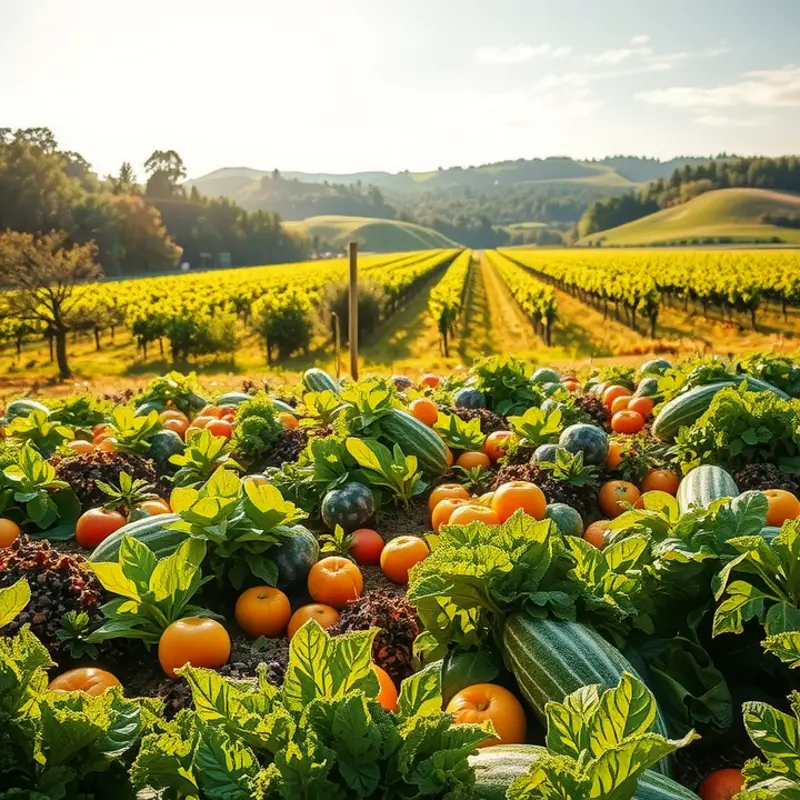Embracing vegan-friendly baking opens doors to healthier and more inclusive recipes that can delight everyone. For home cooks and health-conscious individuals, this guide provides a treasure trove of ingredient swaps, ensuring that every baking endeavor remains simple without sacrificing flavor or texture. It’s time to rethink traditional baking components and discover how accessible and versatile vegan alternatives can enhance your culinary creations.
Essential Vegan Baking Ingredients

When it comes to vegan baking, having the right ingredients can make all the difference. This chapter delves into some fundamental components that not only substitute traditional ingredients but also enhance your baking endeavors, creating delightful treats that are entirely plant-based.
Understanding flour substitutes is crucial in vegan baking. Whole grain flours like spelt and oat flour are excellent choices. Spelt flour brings a mild, nutty flavor and soft texture, ideal for cookies and muffins. Oat flour adds a rich, wholesome taste while enhancing texture with its subtle chewiness. For gluten-free options, almond flour is a popular choice, imparting a moist and tender crumb, perfect for cakes and bread. Its slightly sweet flavor complements desserts well.
Sugar is another staple that can easily be swapped. Coconut sugar and maple syrup are fantastic unrefined options. Coconut sugar provides a caramel-like sweetness with a lower glycemic index, while maple syrup gives a rich, deep flavor with a hint of smokiness. Date sugar is another great natural sweetener that adds a brown sugar-like taste, adding complexity to brownies and cookies.
Egg replacements are often the trickiest part of vegan baking. Flaxseed meal and chia seeds are versatile for this purpose. Mixing one tablespoon of ground flaxseed with three tablespoons of water creates a “flax egg,” which mimics the binding properties of eggs. Chia seeds can be used similarly. Both impart a subtly nutty flavor, making them excellent for muffins and pancakes. For cakes that need more lift, aquafaba, the liquid from canned chickpeas, is a game-changer, providing a light and airy texture.
Vegan baking also benefits from plant-based fats. Coconut oil and vegan butter are widely used for their ability to add richness and moisture, much like traditional butter. Coconut oil is excellent in recipes where a hint of coconut complements the flavor profile. Conversely, neutral-tasting oils such as sunflower or grapeseed are great choices for more subtle recipes like plain scones.
Non-dairy milk is essential, with almond, soy, and oat milk leading the pack. Almond milk’s light flavor is perfect for most recipes, while soy milk’s creaminess works wonders in richer desserts. Oat milk is a fantastic all-rounder, providing a slightly sweet and velvety texture to everything from cupcakes to pancakes.
For leavening, baking soda and baking powder remain staples, but it’s important to ensure they’re vegan-certified as some brands use animal derivatives. Vinegar, especially apple cider vinegar, is a great companion to baking soda in recipes needing a rising boost. The acid-based reaction produces carbon dioxide, resulting in fluffy cakes and quick breads.
Finally, xanthan gum can enhance texture and elasticity, particularly in gluten-free recipes, acting as a binding agent. Use sparingly, as too much can make the baked goods gummy.
With so many versatile ingredients available, you can enjoy a wide array of delicious, vegan-friendly creations. By understanding these essential components, your vegan baking will be elevated, offering taste and texture that rival their traditional counterparts. For more on vegan recipes that embrace these ingredients, check out this resource on a Mediterranean chickpea salad.
Smart Substitutions for Every Recipe

Embracing vegan baking opens a world of creativity by substituting traditional ingredients with plant-based alternatives without sacrificing flavor or texture. Here, discover how a few smart substitutions can make your baking process seamless and delicious.
Butter can easily be replaced to maintain the creamy richness it imparts. Coconut oil is a fantastic alternative. It mimics butter’s fat content and provides a subtle coconut flavor that complements sweets. If you’re aiming for a lower-fat option, applesauce is another excellent choice. It keeps baked goods moist and is ideal for muffins or cakes where a slight apple essence can enhance the flavor profile.
Eggs are foundational in baking, serving as binders and leavening agents. Fortunately, flaxseed meal can substitute eggs effectively. Combine one tablespoon of flaxseed meal with three tablespoons of water to create a gel-like mixture that replicates the consistency of an egg. This blend works well in chewy cookies or dense cakes. Another egg substitute is chia seeds. Mix one tablespoon of chia seeds with two and a half tablespoons of water. This mixture is not only high in fiber but also gives structure to your baked goods.
For recipes that call for milk, finding a plant-based alternative is straightforward. Almond milk, oat milk, and soy milk all work well as substitutes. Each brings its unique flavor and dish texture. For a thicker consistency akin to buttermilk, add a tablespoon of lemon juice to a cup of almond milk. Let it sit for a few minutes before incorporating it into your recipe.
Incorporating these substitutions enhances the adaptability of your recipes. Even if you run out of coconut oil, olive oil is a worthy backup, especially for savory breads. Experimenting with these variations lets you understand how different ingredients interact.
Focusing on sweeteners, cane sugar is not the only option. Maple syrup or agave nectar allows you to achieve sweetness with a liquid consistency. These can add unique flavors to your baked goods. Remember to adjust the liquid content in your recipe accordingly.
For those who require gluten-free options, combining almond flour with coconut flour can yield excellent results. Almond flour gives moisture, while coconut flour absorbs liquids, complementing each other beautifully. This combination ensures a dough that handles well without relying on traditional wheat flour.
Finally, explore options like nutritional yeast to replace cheese toppings if you’re creating savory pastries. Its nutty, cheesy flavor is a favorite among vegans and non-vegans alike.
Understanding these substitutions empowers both beginners and seasoned bakers to craft vegan delights effortlessly. Unlike rigid dietary patterns, vegan baking thrives on flexibility and innovation, ensuring delicious success in any kitchen environment. Dive into the keto chocolate chip cookies recipe for inspiration and see how substitutions can play out in a different dietary landscape.
Final words
Vegan baking is not just about eliminating animal products; it’s about embracing a world of flavor and creativity. With these essential ingredients and substitution tips, anyone can transform their baking routine and create delicious recipes that cater to all dietary preferences. Remember that baking is an art, and experimentation is key. Don’t be afraid to try new ingredients and techniques to find what works best for you and your loved ones. Whether you’re making a simple loaf of bread or an elaborate cake, a vegan approach can lead to delightful and wholesome outcomes.







